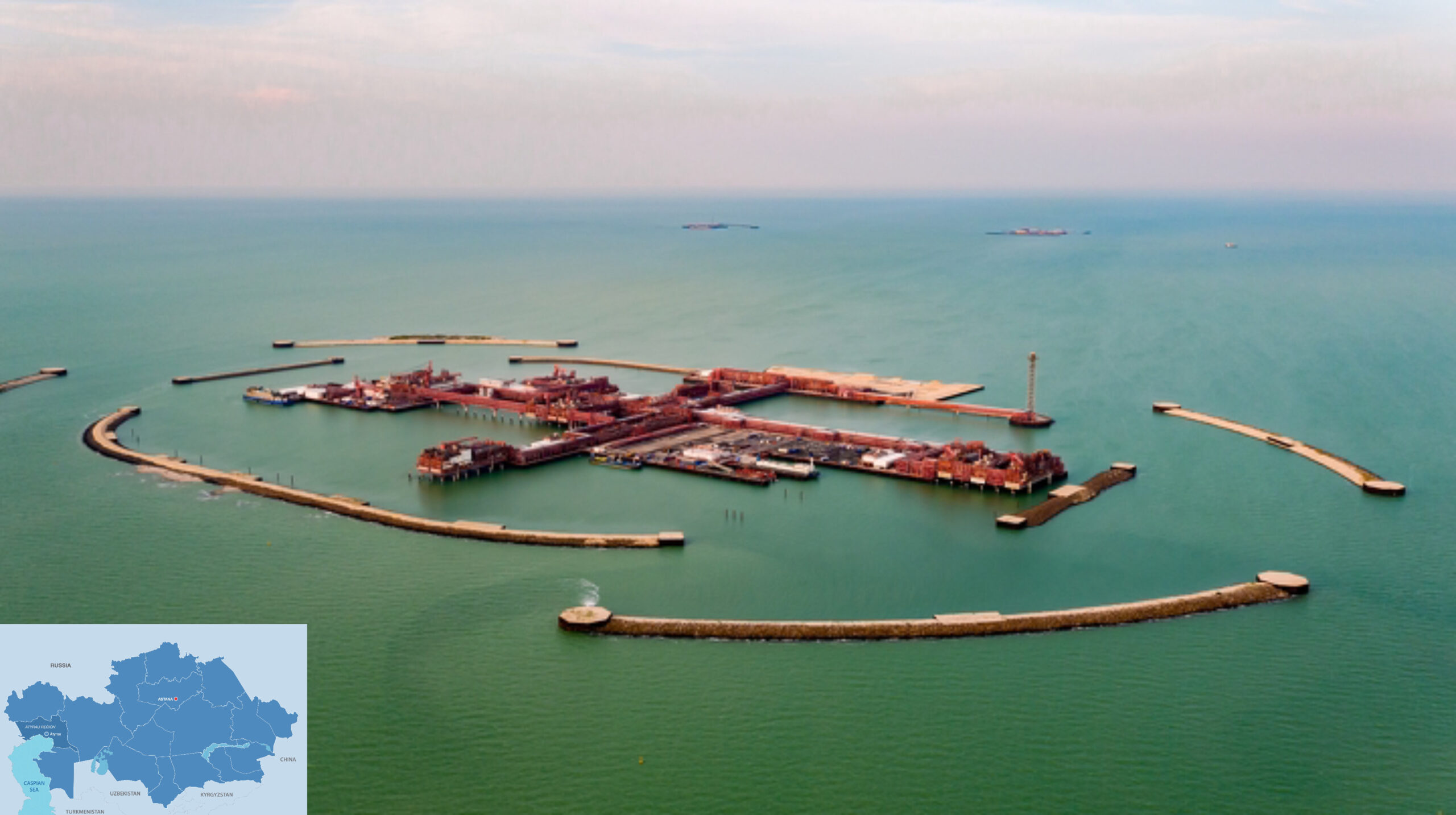ASTANA – Kazakhstan’s first shipment of crude oil from the Kashagan field via the Baku-Tbilisi-Ceyhan (BTC) pipeline signals a growing partnership between Kazakhstan and Azerbaijan, with the potential to expand volumes.

The Kashagan field. Photo credit: kmg.kz Click to see the map in full size. The map is designed by The Astana Times.
At the end of January, Kazakhstan shipped its first batch of Kashagan oil, a volume of around 6,000 tons, through BTC. Experts from Azerbaijan have evaluated its prospects and long-term viability.

Anar Azizov. Photo credit: report.az
According to Anar Azizov, an economist from Azerbaijan, the beginning of transportation of Kashagan oil via BTC is the next stage of expansion of energy cooperation between the two countries.
“It should be noted that over the past three years, Baku and Astana have intensified cooperation in the energy sector, especially in transit of Kazakh oil. Kazakhstan has been looking for options to diversify its oil export routes since 2022. In this regard, Baku is ready to provide Kazakhstan with free capacities of BTC,” said Azizov, as quoted by Kazinform news agency.
He forecasts an increase in the Kazakh oil volumes shipped through Azerbaijan.
“Kazakhstan expressed its readiness to transport up to 20 million tons [of oil] through BTC. Reaching that volume will naturally take time, but it is achievable in five to seven years. In addition to BTC, the Baku-Supsa oil pipeline could also be used, as its capacity is currently underutilized,” said Azizov.
Kazakhstan and Azerbaijan have to expand their tanker fleets on the Caspian Sea to boost oil transit volumes.
“In principle, both countries are now taking certain steps in this direction. In addition, it is possible to use the capabilities of the Baku shipyard. Such cooperation can bring additional income to the two countries,” he said.

Rauf Aghamirzayev. Photo credit: from the personal archive of Rauf Agamirzaev
Rauf Aghamirzayev, an expert in transportation and logistics, considers transporting Kashagan oil via the BTC pipeline a historic milestone.
“This shows how important it is for Kazakhstan to diversify its energy routes and how timely the Baku-Tbilisi-Ceyhan pipeline was built, which makes it possible to supply oil products to world markets from the closed Caspian basin,” he told Kazinform.
Aghamirzayev forecasted growing oil volumes in the future. He also highlighted the potential to use the Baku-Supsa pipeline, an 833-kilometer pipeline that connects the Sangachal Terminal near Baku to the Supsa Terminal on the Black Sea coast of Georgia.
“In addition to pipelines, railroads will soon be used to supply oil products through the territory of Azerbaijan. In principle, Azerbaijan already has its own tankers, such as Afromax, which is another advantage for transportation,” he said.

Lada Yevgrashina. Photo credit: Turan.az
Lada Yevgrashina, an Azerbaijani energy expert, said that while the BTC pipeline offers an important alternative for transporting oil to global markets, it also comes with certain limitations.
“The main obstacles are the high sulfur content of Kashagan crude, which requires blending or desulfurization, and infrastructure bottlenecks at the port of Aktau. In addition, BTC’s multi-stage logistics increase the cost and complexity of transit. Although BTC enhances Kazakhstan’s export flexibility, it remains a secondary option, not a replacement for the Caspian Pipeline Consortium,” she told Kazinform.
According to her, the long-term viability of BTC will depend on infrastructure modernization, a quality crude oil blending bank, and cost optimization.
